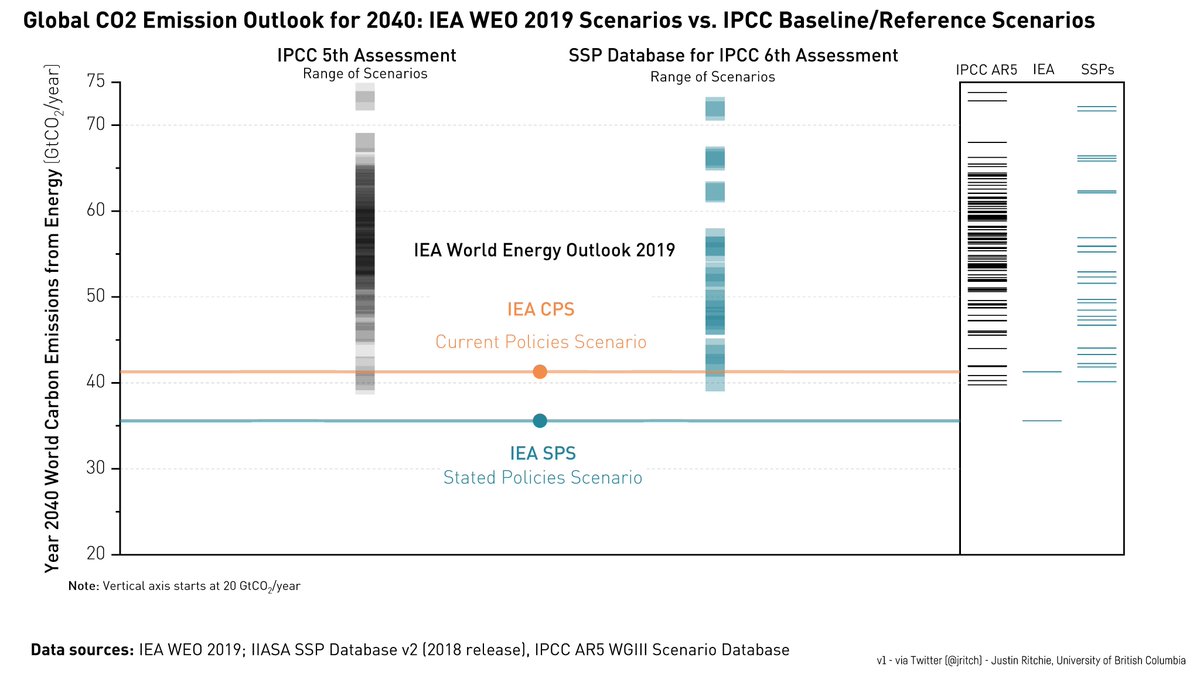
How to get URL link on X (Twitter) App


 👆 Conversations about the realism of RCP8.5 and SSP5-8.5 have emphasized how they are projecting a massive expansion in coal demand but these scenarios are also aggressive outlooks for oil - SSP5-8.5 anticipates 70% more oil production by mid-century than today - 2/9
👆 Conversations about the realism of RCP8.5 and SSP5-8.5 have emphasized how they are projecting a massive expansion in coal demand but these scenarios are also aggressive outlooks for oil - SSP5-8.5 anticipates 70% more oil production by mid-century than today - 2/9

 👆 Looking at CO2 emissions from all the IEA current policy and announced policy scenarios since the last IPCC assessment a few things are clear - 2/13
👆 Looking at CO2 emissions from all the IEA current policy and announced policy scenarios since the last IPCC assessment a few things are clear - 2/13

 📈➡️ 2040 both the IEA Current Policies Scenario (CPS) and IEA Stated Policies Scenario (SPS) are consistently aligned with outlooks for energy/industry CO2 emissions that do not exceed RCP4.5 ▶️ RCP4.5 is associated with +2.6˚C warming by 2100 vs. pre-industrial baseline - 2/6
📈➡️ 2040 both the IEA Current Policies Scenario (CPS) and IEA Stated Policies Scenario (SPS) are consistently aligned with outlooks for energy/industry CO2 emissions that do not exceed RCP4.5 ▶️ RCP4.5 is associated with +2.6˚C warming by 2100 vs. pre-industrial baseline - 2/6

 The IEA scenarios project developments in the global energy system through 2040 so we can look at CO2 emissions from energy and industry in that year across the sets of scenarios used for IPCC assessments. Thread: 2/11
The IEA scenarios project developments in the global energy system through 2040 so we can look at CO2 emissions from energy and industry in that year across the sets of scenarios used for IPCC assessments. Thread: 2/11

 A few things to note about specific scenarios in this thread - RCP8.5: the new SSP5-RCP8.5 scenario requires a much faster CO2 emission increase after 2030 than the old version used in IPCC AR5 - 2/13
A few things to note about specific scenarios in this thread - RCP8.5: the new SSP5-RCP8.5 scenario requires a much faster CO2 emission increase after 2030 than the old version used in IPCC AR5 - 2/13